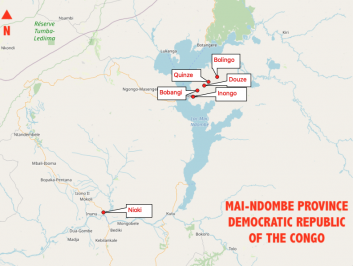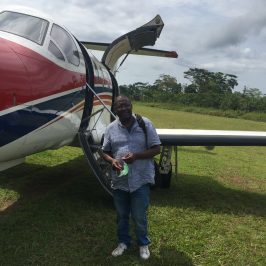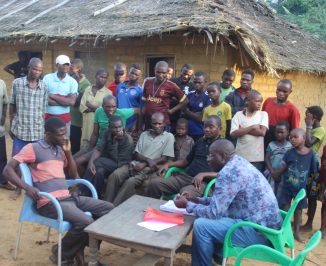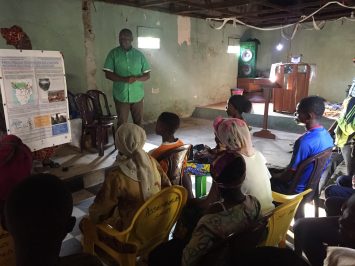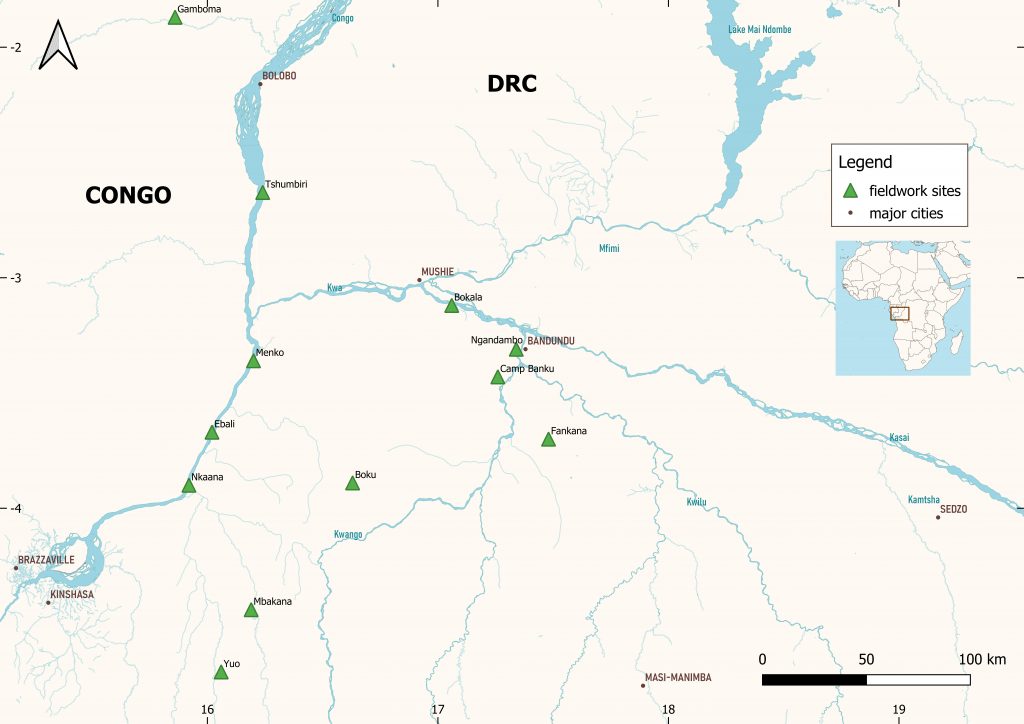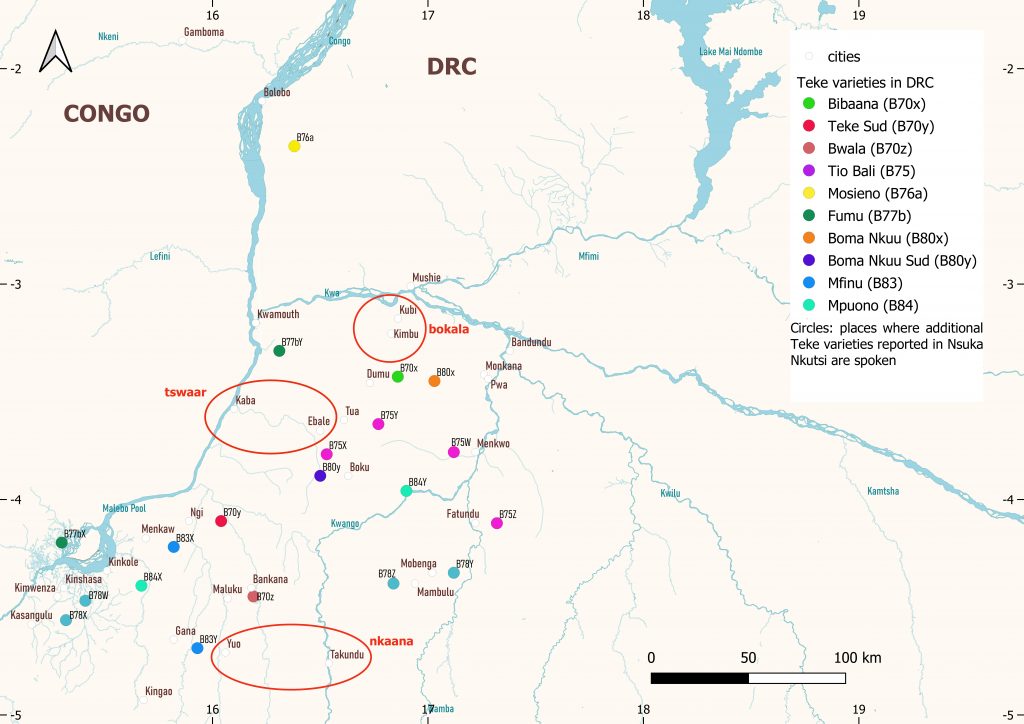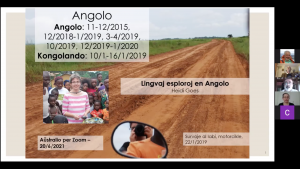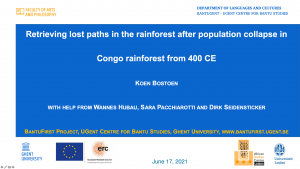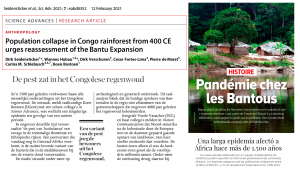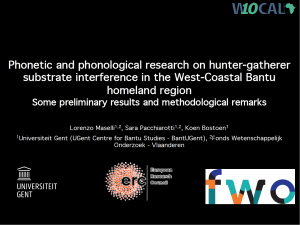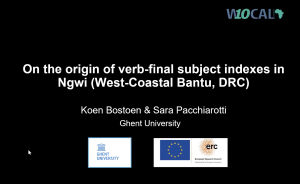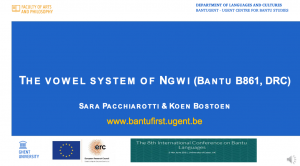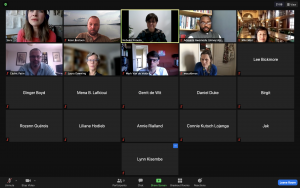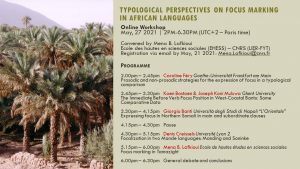Lorenzo Maselli (BantUGent), a PhD student affiliated with the BantuFirst team, recently came back from a field mission in the DRC that was financed to a large extent by the BantuFirst project. On this research trip, Lorenzo was accompanied by Jean-Pierre Donzo, a former PhD candidate at our department, currently professor in African Linguistics at the ISP Gombe, in Kinshasa. The two met up in Kinshasa on May 21, 2021, and remained together until July 12, when Lorenzo flew back to Belgium. The area where they conducted their research primarily centred around the Province of Mai-Ndombe (in an ecoregion defined as “forest-savanna mosaic”). Specifically, they worked in the provincial capital Inongo, in a number of hunter-gatherer villages NE of Inongo, namely Bobangi-Sept, Douze, Quinze and Bolingo-Trentesept, and finally in Nioki.
The stays in Kinshasa allowed Lorenzo and Jean-Pierre to fill up on fieldwork paraphernalia, arrange meetings with local scholars, relevant political figures and members of local Twa communities. They were also paramount in establishing first contacts with collaborators in Inongo and Nioki, in organising a conference at the ISP Gombe, and in planning long-term research strategy proposals with several colleagues in the DRC.
The research perspectives for this fieldwork mission are extremely promising. For a phonetician and phonologist, the Mai-Ndombe represents a fruitful field of enquiry, as a number of arguably uncommon phenomena can be found there. The first analytical steps should be oriented towards: (i) retroflex consonants in North Boma, Nunu, and, to a lesser extent, Mpe; (ii) Sakata labial-velars; and (iii) Lotwa trill/retroflex consonants. Subsequent steps include: phonological descriptions of the sound systems at hand, wider-range acoustic surveys of the same sounds, aerodynamic and articulatory studies.
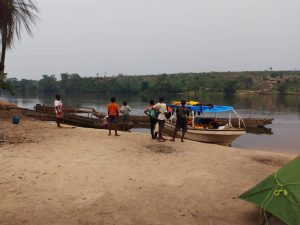
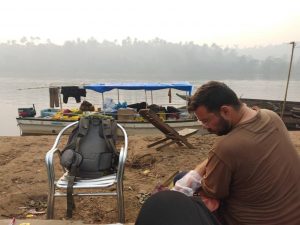
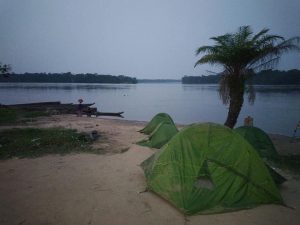
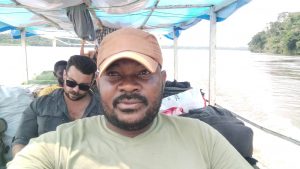
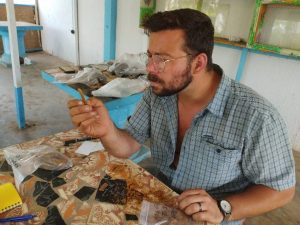
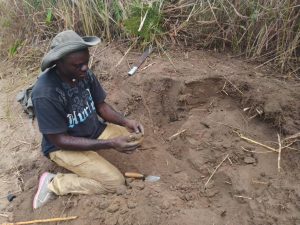
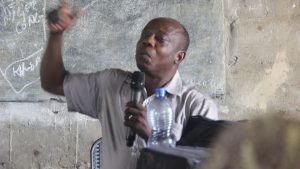 Congolese gestures in Inongo
Congolese gestures in Inongo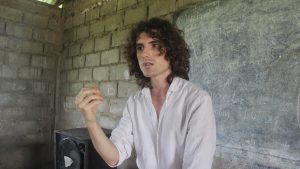 Italian gestures in Inongo
Italian gestures in Inongo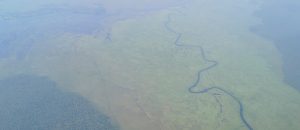 The Province of Mai-Ndombe from above
The Province of Mai-Ndombe from above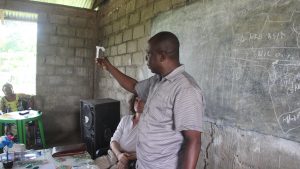 Explaining genetic research at ISP Inongo
Explaining genetic research at ISP Inongo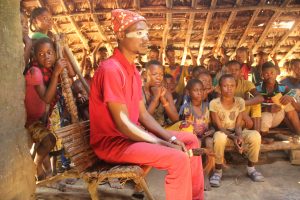 Community gathering in Bolingo
Community gathering in Bolingo